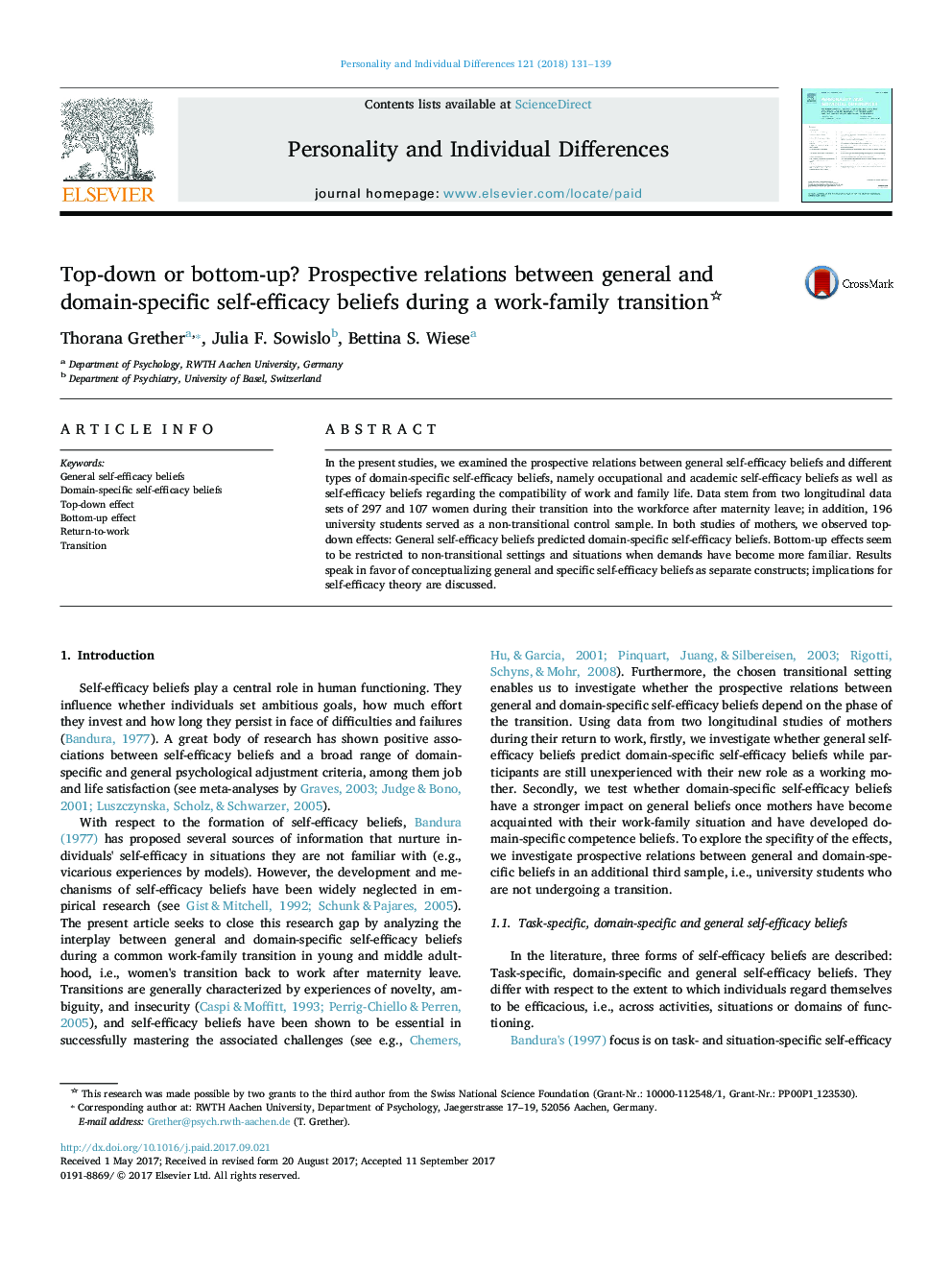| Article ID | Journal | Published Year | Pages | File Type |
|---|---|---|---|---|
| 5035490 | Personality and Individual Differences | 2018 | 9 Pages |
Abstract
In the present studies, we examined the prospective relations between general self-efficacy beliefs and different types of domain-specific self-efficacy beliefs, namely occupational and academic self-efficacy beliefs as well as self-efficacy beliefs regarding the compatibility of work and family life. Data stem from two longitudinal data sets of 297 and 107 women during their transition into the workforce after maternity leave; in addition, 196 university students served as a non-transitional control sample. In both studies of mothers, we observed top-down effects: General self-efficacy beliefs predicted domain-specific self-efficacy beliefs. Bottom-up effects seem to be restricted to non-transitional settings and situations when demands have become more familiar. Results speak in favor of conceptualizing general and specific self-efficacy beliefs as separate constructs; implications for self-efficacy theory are discussed.
Related Topics
Life Sciences
Neuroscience
Behavioral Neuroscience
Authors
Thorana Grether, Julia F. Sowislo, Bettina S. Wiese,
